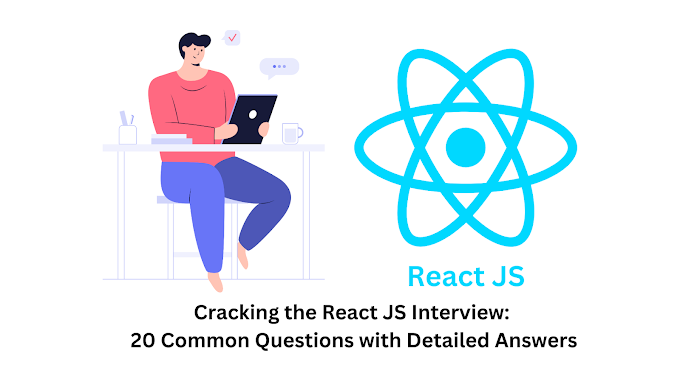Introduction
A career in C++ programming offers countless opportunities for innovation and problem-solving, but to land that dream job, you must first navigate the rigorous interview process. In this comprehensive guide, we've compiled 20 common C++ programming interview questions that companies frequently pose to assess candidates' knowledge and problem-solving skills. Each question is accompanied by a detailed explanation and a sample answer to equip you with the knowledge and confidence needed to ace your C++ programming interview.
1. Introduction: Preparing for C++ Programming Interviews
The Significance of C++
C++ is a powerful and versatile programming language known for its efficiency and support for both procedural and object-oriented programming paradigms. It is widely used in various domains, including game development, systems programming, and software engineering.
The Interview Process
C++ programming interviews often involve a combination of technical questions, coding exercises, and problem-solving challenges. Preparing thoroughly is crucial to stand out in a competitive job market.
Tips for Success
Before diving into the interview questions, it's essential to review C++ fundamentals, practice coding, and cultivate strong problem-solving skills. Additionally, be prepared to explain your thought process and demonstrate your understanding of C++ concepts during interviews.
2. C++ Programming Fundamentals
The Essence of C++
C++ is an extension of the C programming language, offering additional features like classes, objects, and inheritance. It combines the low-level capabilities of C with high-level abstractions of object-oriented programming.
Key Features of C++
C++ boasts features such as classes, templates, and operator overloading, making it a versatile language for designing efficient and maintainable code.
Why Choose C++?
C++ is favored for its performance, flexibility, and suitability for developing a wide range of applications, from embedded systems to video games.
3. 20 Common C++ Programming Interview Questions
Let's explore the 20 common C++ programming interview questions with detailed explanations and sample answers.
Question 1: What are the differences between C and C++?
Answer: C++ is an extension of C and includes additional features like classes, objects, and inheritance, making it an object-oriented language. C is a procedural language without support for OOP concepts.
Question 2: Explain the concept of object-oriented programming (OOP).
Answer: OOP is a programming paradigm that focuses on designing software using objects, which are instances of classes. OOP principles include encapsulation, inheritance, and polymorphism.
Question 3: Describe the concept of a class in C++.
Answer: A class in C++ is a blueprint for creating objects. It defines the structure and behavior of objects by encapsulating data members and member functions.
Question 4: What is inheritance in C++? Provide an example.
Answer: Inheritance allows a class to inherit properties and behaviors from another class. For example, a "Car" class can inherit from a "Vehicle" class, inheriting attributes like "speed" and "fuel."
Question 5: Discuss the differences between public, private, and protected access specifiers.
Answer: Public members are accessible from any part of the program. Private members are only accessible within the class. Protected members are accessible within the class and derived classes.
Question 6: Explain the importance of virtual functions and polymorphism.
Answer: Virtual functions enable polymorphism, allowing objects of different classes to be treated uniformly. Polymorphism simplifies code and enhances flexibility.
Question 7: How is dynamic memory allocation done in C++?
Answer: Dynamic memory allocation is achieved using operators like 'new' and 'delete' or 'malloc' and 'free.' The 'new' operator allocates memory on the heap, and 'delete' deallocates it.
Question 8: What is the role of constructors and destructors in C++?
Answer: Constructors initialize objects, while destructors clean up resources when an object is destroyed. They ensure proper object initialization and cleanup.
Question 9: Differentiate between function overloading and operator overloading.
Answer: Function overloading allows multiple functions with the same name but different parameters. Operator overloading enables custom definitions of operators for user-defined classes.
Question 10: How is exception handling implemented in C++?
Answer: C++ uses try, catch, and throw keywords to handle exceptions. Exceptions are thrown in the 'try' block and caught in the 'catch' block for error handling.
Question 11: Describe the usage of smart pointers in modern C++.
Answer: Smart pointers (e.g., 'shared_ptr' and 'unique_ptr') manage dynamic memory automatically, preventing memory leaks. They facilitate safer and more efficient resource management.
Question 12: What are templates in C++, and how do they work?
Answer: Templates allow the creation of generic classes or functions that work with different data types. They are instantiated with specific data types at compile-time.
Question 13: Explain the Standard Template Library (STL) in C++.
Answer: STL provides reusable data structures (e.g., vectors, maps) and algorithms (e.g., sorting) in C++. It simplifies common programming tasks and promotes code reusability.
Question 14: What is the difference between a shallow copy and a deep copy?
Answer: A shallow copy duplicates the pointers to objects, while a deep copy duplicates the objects themselves. Deep copies create independent copies, while shallow copies share data.
Question 15: How does RAII (Resource Acquisition Is Initialization) work?
Answer: RAII is a C++ programming idiom where resource management (e.g., memory allocation) is tied to object lifetimes. Resources are acquired in constructors and released in destructors.
Question 16: Discuss the concept of multiple inheritance in C++.
Answer: Multiple inheritance allows a class to inherit from multiple base classes. It can lead to issues like the diamond problem, which is resolved using virtual inheritance.
Question 17: What are lambda expressions in C++, and when are they useful?
Answer: Lambda expressions are anonymous functions that simplify code by defining functions in place. They are valuable for short, simple operations.
Question 18: How does C++ support multithreading?
Answer: C++ offers a standardized threading library (std::thread) for creating and managing threads. It also includes synchronization primitives like mutexes and condition variables.
Question 19: Explain move semantics and its benefits in C++.
Answer: Move semantics enable efficient transfer of resources (e.g., memory) from one object to another, reducing unnecessary copying. It's essential for optimizing performance.
Question 20: What is the Pimpl Idiom, and why is it used?
Answer: The Pimpl (Pointer to Implementation) Idiom is a design pattern that separates a class's implementation details from its public interface. It enhances encapsulation and reduces compile-time dependencies.
4. Sample Answers to C++ Programming Interview Questions
This section provides detailed answers and code examples for each of the 20 C++ programming interview questions.
5. Conclusion: Excel in Your C++ Programming Interview
In conclusion, preparing for a C++ programming interview requires a deep understanding of C++ fundamentals, object-oriented concepts, and problem-solving skills. Practice coding, review sample answers, and be ready to explain your thought process during interviews. Armed with this knowledge, you can confidently approach C++ programming interviews and embark on a successful career in software development. Best of luck!












0 Comments